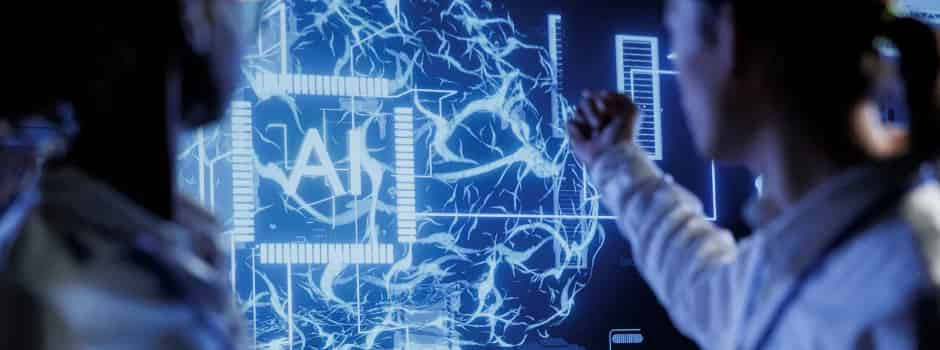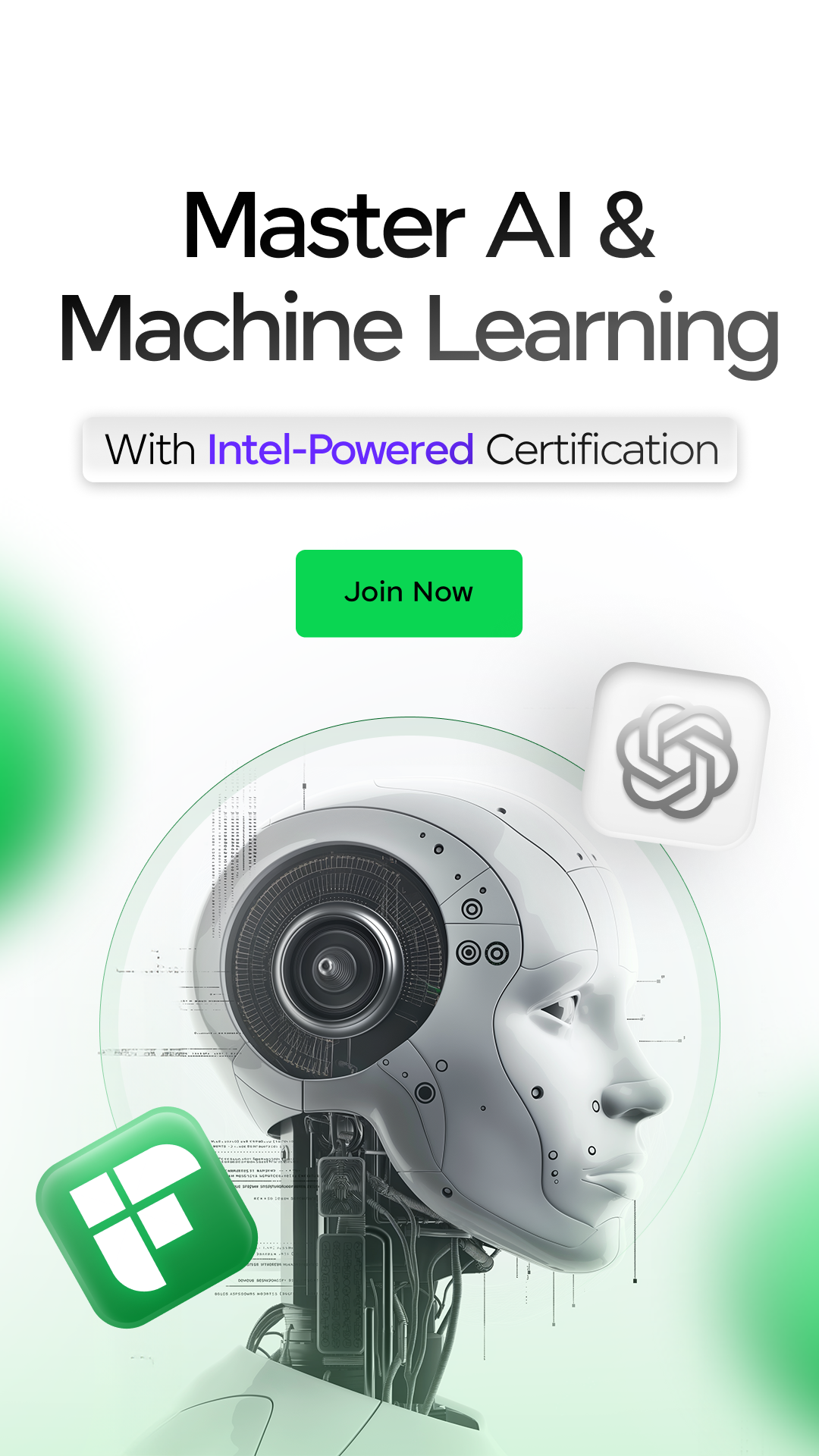
Understanding the Exciting Roles and Responsibilities of AI Professionals: Your Future in AI 101
Aug 04, 2025 3 Min Read 1817 Views
(Last Updated)
Artificial Intelligence is changing the way we live and work. Companies in every industry now want experts who can create smart solutions using AI.
But what exactly does an AI professional do?
Understanding the roles and responsibilities of an artificial intelligence professional is important for anyone thinking about a career in this field. AI professionals do much more than just write code.
In this blog, we’ll explore the main roles and responsibilities of AI professionals.
Table of contents
- Impact of AI Professionals on Business and Society
- Industries That Hire AI Professionals
- What Are the Roles and Responsibilities of AI Professionals?
- Designing and Building AI Models
- Data Collection, Preparation & Pipeline Management
- Researching and Optimizing New Algorithms
- Deploying AI Systems to Production
- Monitoring, Maintenance & Continuous Improvement
- Building Data & AI Infrastructure
- Ethical AI, Governance & Compliance
- How to Master the Roles and Responsibilities of AI Professionals?
- Conclusion
- Frequently Asked Questions
Impact of AI Professionals on Business and Society
The roles and responsibilities of AI professionals go beyond just writing code. AI experts have a big impact on how businesses grow and how society changes.
Business impact:
- AI helps companies save money by automating repetitive tasks.
- Businesses gain new insights into customer behavior and trends, making smarter decisions.
- AI systems can work 24/7, improving efficiency and speed.
Society impact:
- AI solutions are used to fight climate change by analyzing weather and pollution data
- Healthcare AI models help diagnose diseases earlier and more accurately. AI professionals helped develop early COVID-19 detection systems that used big data to track outbreaks.
A common question today is: “Will AI replace programmers?” This article on Will AI Replace Programmers? discusses how AI professionals are helping tech teams grow, and not take over.
Industries That Hire AI Professionals
The roles and responsibilities of artificial intelligence professionals are in high demand across many industries, not just tech companies.
Today, businesses of all types use AI to solve unique problems, make better decisions, and stay ahead of competitors.
Key Industries Relying on the Roles and Responsibilities of AI Professionals:
- Healthcare: AI is used for medical image analysis, predicting patient risks, and personalizing treatment plans.
- Finance: Banks and fintech companies use AI for fraud detection, risk management, and automated trading.
- E-commerce: Online retailers use AI for product recommendations, dynamic pricing, and chatbots for customer support.
- Automotive: Self-driving cars, route optimization, and predictive maintenance all rely on AI.
- Manufacturing: AI improves supply chain management, quality checks, and automates repetitive tasks on the production line.
- Education: EdTech firms use AI for adaptive learning, personalized content, and student performance prediction.
If you want to learn more about how AI is being trained at scale and applied across India, check out this blog on All About GUVI’s AI for India 2.0. it explains a national initiative with guided training, projects, and job priority.
What Are the Roles and Responsibilities of AI Professionals?
The roles and responsibilities of AI professionals cover many important tasks in a company.
Let’s break down the main areas where AI professionals make a difference:
1. Designing and Building AI Models
Role & Responsibility: The roles and responsibilities of AI professionals include designing, building, and training AI models.
Purpose: The goal is to create systems that learn from data and can solve real problems, like making predictions or recognizing patterns.
Example: An AI professional may build a fraud detection model for a bank, helping spot suspicious transactions automatically.
2. Data Collection, Preparation & Pipeline Management
Role & Responsibility: Another core role and responsibility of AI professionals is collecting, cleaning, and organizing data for model training.
Purpose: Clean and well-prepared data is essential because AI models can only be as good as the data they learn from.
Example: An AI professional might collect sales data from multiple stores, remove duplicates, and organize it so it’s ready for analysis.
3. Researching and Optimizing New Algorithms
Role & Responsibility: The roles and responsibilities of AI professionals also cover staying up to date with new research and improving existing models.
Purpose: This ensures the company uses the best tools and methods, leading to smarter and more accurate AI systems.
Example: An AI professional may test new algorithms for image classification and pick the one that gets the best results for a healthcare project.
4. Deploying AI Systems to Production
Role & Responsibility: A major role and responsibility of AI professionals is putting AI models into production so they can be used in real-world applications.
Purpose: This lets businesses turn AI research into valuable tools, automating tasks and providing insights.
Example: Deploying a recommendation model that suggests products to users on an e-commerce website.
5. Monitoring, Maintenance & Continuous Improvement
Role & Responsibility: The roles and responsibilities of AI professionals also involve monitoring deployed models, fixing errors, and updating models as needed.
Purpose: The purpose is to keep the AI system accurate and reliable over time as data changes.
Example: An AI professional might notice that a chatbot’s answers are getting worse, so they retrain the model with fresh conversation data.
6. Building Data & AI Infrastructure
Role & Responsibility: Many roles and responsibilities of AI professionals also include to also set up and managing data pipelines and cloud infrastructure for machine learning.
Purpose: This supports smooth, scalable, and automated AI workflows, making it easy for teams to build, test, and deploy models.
Example: Setting up automated scripts on AWS or Google Cloud to collect data, train models, and deploy predictions in real-time.
7. Ethical AI, Governance & Compliance
Role & Responsibility: An important role and responsibility of AI professionals is to make sure AI systems are ethical, unbiased, and follow all rules and regulations.
Purpose: This builds trust, avoids legal problems, and ensures AI benefits everyone fairly.
Example: Adding fairness checks so a loan approval model does not discriminate based on gender or age.
How to Master the Roles and Responsibilities of AI Professionals?
Getting the right training is important if you want to learn the roles and responsibilities of AI professionals
Today, you can find many practical courses and certificates online. For example, the AI for India 2.0 Program is a beginner-friendly course where you can work on real projects and get help finding a job.
Another good option is the GUVI Zen Class: Artificial Intelligence and Machine Learning Course, which teaches you Python, machine learning, deep learning, and gives you hands-on assignments to build your portfolio.
These courses can help you learn the skills you need to start your career as an AI professional.
Conclusion
The roles and responsibility of artificial intelligence professionals are growing as more companies use AI to solve real problems.
From building smart models to keeping data safe and making sure AI is fair, AI professionals help shape the future of business and society.
If you want to start a career in this field, focus on learning the right skills, and with dedication, you can build a great future as an AI professional.
Frequently Asked Questions
1. What are the main roles and responsibilities of artificial intelligence professionals?
AI professionals build and train models, prepare data, research new methods, deploy AI systems, monitor their performance, and make sure AI is fair and ethical.
2. Do I need a degree to start a career in AI?
An AI degree helps, but it’s not always required. Many people learn AI through online courses and practical projects, and get hired based on their skills.
3. Which industries need AI professionals?
AI professionals work in healthcare, finance, e-commerce, automotive, manufacturing, and many other industries that use data and smart technology.





























Did you enjoy this article?